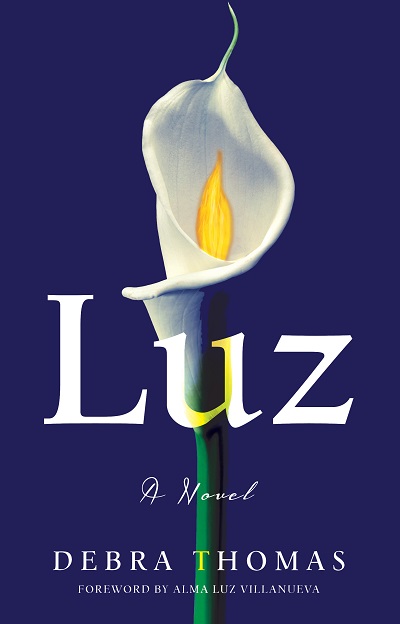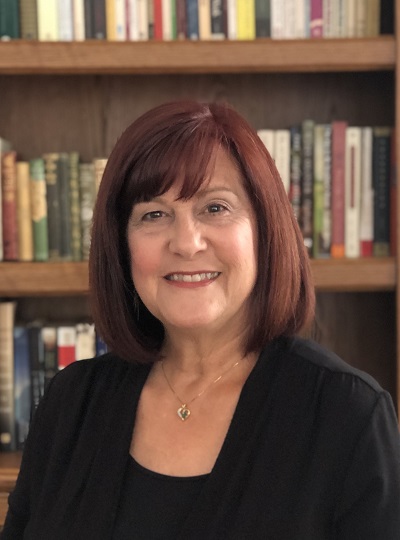We can all relate to a daughter’s desperate need to find her missing father and to a father’s reasons for seeking the best means to support his family. These are common feelings and experiences shared by all, regardless of their birthplace or language.
Debra Thomas – 15 July 2020
The Back Flap
Alma wishes her willful teenage daughter, Luz, could know the truth about her past, but there are things Luz can never know about the journey Alma took to the US to find her missing father. In 2000―three years after the disappearance of her father, who left Oaxaca to work on farms in California―Alma sets out on a perilous trek north with her sister, Rosa. Along the way, they meet Manuel, a young man from Guatemala, who joins them in their travels and with whom Alma will fall in love. Together the three will encounter both kindness and profound cruelty. What happens once Alma reaches the US is a journey from despair to hope. A connection to her father’s past, the truth about a hidden letter, and her determined search to find farmworker champion Dolores Huerta help her move forward as she finds answers to her questions and gains strength to begin a new life in Los Angeles with her daughter, Luz. Timeless in its depiction of the depths of family devotion and the blaze of first love, Luz conveys, with compassion and insight, the plight of those desperate to cross the US border.
Luz is the Winner of the 2020 Next Generation Indie Book Award for Multicultural Fiction
About the book
What is the book about?
Luz is actually the story that protagonist Alma can never tell her daughter Luz. While the novel begins with the mother and daughter in 2015, the heart of the book is Alma’s perilous journey in 2000 as she and her sister Rosa travel from southern-most Mexico to the US to search for their missing farmworker father. Along the way, Alma experiences first love, encounters great kindness and profound cruelty, and ultimately makes a life with her infant daughter Luz in Los Angeles. While it is certainly a story of border crossings and immigrant struggles, it is mostly a testament to a daughter’s love for her father and father’s devotion to his family.
When did you start writing the book?
An earlier version of this novel was begun in 2004 and finished in 2006. In 2017, I revised and expanded the original to produce Luz.
How long did it take you to write it?
My teaching position at the time gave me four months off a year, so I wrote intensely during those months and sporadically while I was teaching, so the first version took approximately two years. The revisions in 2017 were completed over a year.
Where did you get the idea from?
I was moved deeply by news reports of migrant deaths in the desert at the US-Mexico border in the 1990s and early 2000s. I taught English as a Second Language to adults in Los Angeles, and many of my students were from Mexico and Central America. I was familiar with why they came, what risks they took, and what difficulties they faced once here. In a writing class, in response to an assignment, I began writing in Alma’s voice, and her story just poured out of me. As an immigrant and refugee rights advocate, I had other experiences that added layers to this story.
Were there any parts of the book where you struggled?
There is one particularly violent scene that wasn’t so much a struggle as it was painful to write, for my characters were very dear to me. I wanted it to be realistic, yet not too graphic. I wanted to convey the brutality, as well as a moment of tenderness, so it was a delicate balance.
What came easily?
Alma’s voice! It was almost as if she spoke and I wrote.
Are your characters entirely fictitious or have you borrowed from real world people you know?
All characters are fictitious except, of course, Dolores Huerta, who is a living legend, fighting injustice on all fronts, but most well known for her work with Cesar Chavez and the rights of farmworkers.
Do you have a target reader?
While I imagine readers that are interested in immigrant issues might be drawn to the book, anyone, of any color, culture, or class, could be moved by Alma’s story. We can all relate to a daughter’s desperate need to find her missing father and to a father’s reasons for seeking the best means to support his family. These are common feelings and experiences shared by all, regardless of their birthplace or language. And of course, everyone loves a good love story. So, I am hopeful that Luz will attract a diverse audience.
About Writing
Do you have a writing process? If so can you please describe it?
Generally, I think through an idea. I may not have an ending, but I know where I’m going with the story. I make “character pages” with detailed information about each one, some of which never makes it into the story, but it adds to their character development in my mind. In this novel, I did not have everything planned out. In fact, I had no idea what the secret letter in her father’s wallet was really about. When I came to the chapter where the truth was revealed, it was a thrill to come up with the details. It all made sense as my characters interacted and as each came to life more fully. I think so much comes from our unconscious process that works things through when we’re not actually writing.
Do you outline? If so, do you do so extensively or just chapter headings and a couple of sentences?
I don’t outline on paper. I write out character details. I may write down an idea to add at some point, but I don’t sketch out the whole story ahead of time.
Do you edit as you go or wait until you’ve finished?
Before I move forward, I reread and edit what I wrote previously. But I also edit where needed once the whole work is completed.
Did you hire a professional editor?
No.
Do you listen to music while you write? If yes, what gets the fingers tapping?
No. I need quiet.
About Publishing
Did you submit your work to Agents?
The first version was submitted, and while it was a long process, I finally found an agent. It made the rounds of publishing houses and a few considered it, sending my hopes soaring, but, ultimately, they passed. Years later, with the encouragement of admired mentors, I revised and expanded my novel, but at this point I had heard about She Writes Press and decided to submit to them rather than begin the agent search again. My previous agent was no longer dealing with fiction.
What made you decide to go Indie, whether self-publishing or with an indie publisher? Was it a particular event or a gradual process?
As described above, I had been referred to She Writes Press. They did not exist at the time that I was trying to publish earlier. I believe they began in 2012. I submitted in 2018, and at this point they had an outstanding reputation.
Did you get your book cover professionally done or did you do it yourself?
She Writes Press does stunning covers. Professional.
Do you have a marketing plan for the book or are you just winging it?
I am working with Book Sparks, as well as self-promoting on social media as much as I can.
Any advice that you would like to give to other newbies considering becoming Indie authors?
For women, check out She Writes Press.
About You
Where did you grow up?
Binghamton, New York.
Where do you live now?
I’ve lived in Southern California for over four decades now.
What would you like readers to know about you?
I believe deeply that we are all connected, that we are one “common heart” with similar hopes and fears, loves and desires. I try to focus on how we are alike, on our shared experiences, especially now as we face the same pandemic crisis throughout the world. That’s what drives my writing, a sense of unity and connection.
I am happiest at home with my husband and little dog, or meeting my daughter for lunch, or spending a weekend with my son, his wife, and my two precious grandsons. I read voraciously and write, of course. I have two horses that came to me late in life. I don’t ride. I just enjoy being with them. I also paint mandala stones (with dotting tools—I’m no artist!) and leave them in random places.
What are you working on now?
I’m working on a novel called Pangaea about a family that has been pulled apart like the super-continent, but after a tragedy, they begin to find their way slowly back together. It also includes a Siberian husky, three horses, and an equine vet who just might become a love interest for my protagonist Josie.
End of Interview:
For more from Debra visit her website and like her Facebook page.


